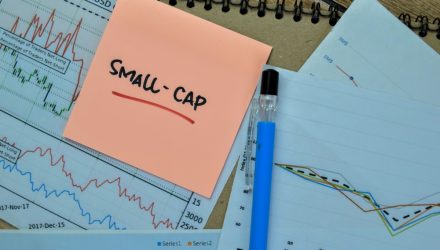Small-cap ETFs are a great way to gain exposure to companies that have high growth potential but may not yet be on the radar of larger investors. These companies are often in the early stages of their growth trajectory. That said, they have the potential to deliver outsized returns over the long term.
By investing in small-cap ETFs, investors can gain exposure to a diversified portfolio of these high-growth companies. As well as reduce their risk and increase their chances of success. The small-cap segment of the market is also less crowded than the large-cap segment. This allows investors to uncover hidden gems that could deliver substantial returns. This article will cover some of the top small-cap ETFs based on their year-to-date (YTD) performance.
Brazil Small-Cap ETFs
Brazil has been experiencing a period of economic growth. This has translated to strong performance in the country’s small-cap companies. As a result, two of the highest-performing Small-Cap ETFs based on YTD performance are focused on Brazil: The VanEck Brazil Small-Cap ETF (BRF) and the iShares MSCI Brazil Small-Cap ETF (EWZS).
See more: “How Quality Small-Cap Investing Navigates Volatility”
The VanEck Brazil Small-Cap ETF (BRF) has been a standout performer this year, with a YTD return of 35.88%. This ETF is designed to target Brazil’s small-cap segment, providing investors with a unique opportunity to invest in the country’s small-cap companies. With its impressive performance and strategic focus, BRF is an attractive option for investors looking to tap into Brazil’s thriving small-cap market.
Another top-performing option for investors seeking targeted exposure to Brazil’s small-cap market is the iShares MSCI Brazil Small-Cap ETF (EWZS) which has delivered an impressive YTD return of 31.53%. The ETF’s specific design is to provide investors with targeted exposure to Brazil’s small-cap segment. This provides investors with a unique opportunity to gain exposure to this high-growth market. Which allows them to diversify their portfolios and potentially achieve attractive returns. With an expense ratio that is in line with other products in the category. The EWZS is a cost-effective way for investors to tap into this high-growth market. As Brazil’s small-cap companies continue to perform well this year, EWZS allows investors to capitalize on this trend and potentially achieve outsized returns.
Other High-Performing Small-Cap ETFs
The Future Innovators ETF (BFTR) is a top choice for investors seeking opportunities to capitalize on the growth potential of innovative small and mid-cap companies, with a specific design to provide long-term capital appreciation. It also has an impressive YTD return of 15.49%. It achieves this by investing in companies with high growth potential across various sectors, targeting the next generation of high-growth companies, and offering a unique opportunity to diversify portfolios and potentially achieve outsized returns. BFTR is an attractive option for those looking to stay ahead of the curve in a rapidly evolving market.
See more: “2 Quality Small Caps to Watch in OUSM“
Investors looking for exposure to high-quality U.S. small-cap companies poised for growth should consider the Motley Fool Small-Cap Growth ETF (TMFS). With a solid YTD return of 15.30%, this ETF actively targets innovative businesses possessing the attributes necessary for long-term growth. The ETF carefully curates its portfolio to include companies that exhibit strong growth potential but may be overlooked or undervalued. This makes it a valuable tool for investors seeking to diversify their portfolios and potentially achieve attractive returns.
Conclusion
Investing in small-cap ETFs can be an effective way to diversify your portfolio and gain exposure to high-growth companies. The above-listed small-cap ETFs have all performed well this year. They offer investors a range of options for investing in small-cap companies. As with any investment, it is important to do your research and choose the ETF that best fits your investment goals and risk tolerance. It is also important to keep in mind that small-cap companies can be more volatile than their larger counterparts. So it is important to have a long-term investment horizon and a diversified portfolio.
For more news, information, and analysis, visit the Financial Literacy Channel.

